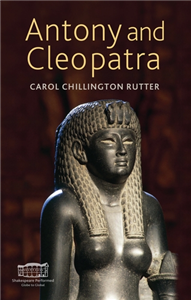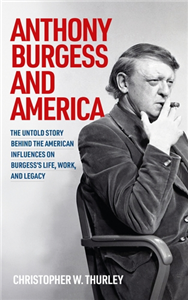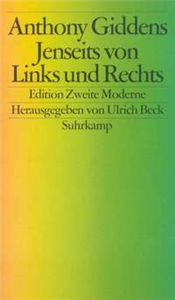Your Search Results
-
Naufal Hachette Antoine
In 2009, Hachette Livre (# 3 publishing group worldwide) and Librairie Antoine (one of the most renowned Lebanese bookseller groups) joined their strengths to set up Hachette Antoine, a joint-venture based in Beirut, Lebanon. The aim of the JV between Hachette Livre and Librairie Antoine was to create a leading trade publisher in the Arabic speaking world, covering the Middle East (Levant and GCC) and North-Africa regions, with a business focus on high potential markets. Our strength: • Large-scale distribution channels in the MENA region with warehouses in Lebanon, Saudi Arabia, UAE and Egypt. • Strong PR and Media connections throughout the region with efficient online and offline marketing tools. • The only Arab publishing house to provide professional and exhaustive editing on both translated and original Arabic books. • Full financial transparency: All audit assertions and financial statements are served by PricewaterhouseCoopers. Our imprints Naufal: is dedicated to fiction and non-fiction. Our list includes well established classical and contemporary authors from the Arab world among which the best-selling/phenomenon Algerian author, Ahlem Mosteghanemi, Syrian novelist Khaled Khalifa, and Lebanese journalist and women’s rights activist, Joumana Haddad. Fiction/translated: In translated fiction, our strategy consists of publishing authors from Arab origins who write in languages other than Arabic, alongside international best-selling authors. We also leave room for a few “coups de cœur” by debut authors. Thrillers and suspense: Include names such as J.K. Rowling aka Robert Galbraith, Mary Higgins Clark, Harlan Coben, Anthony Horowitz and others, and providing quality translations. Non-Fiction: Biographies and Memoirs: Becoming, A promised land. HA Kids: Licenses: Hachette Antoine is the official licensee of Disney, Marvel, Star Wars, Nickelodeon, Ferrari... in the MENA region, with more brands to come. History and Topical books, Illustrated, Inspirational stories, HA Lifestyle, HA Education, HA Reference
View Rights Portal
-
Promoted Content
-
Promoted ContentHumanities & Social SciencesApril 2018
Public relations and the making of modern Britain
by Scott Anthony
-
 Trusted Partner
1983
Trusted Partner
1983Die letzte Fahrt des Admirals
Roman von Mitgliedern des "Detection Club"
by Berkeley, Anthony; Chesterton, G K; Christie, Agatha / Übersetzt von Wiegand, Alexandra
-
 Trusted Partner
Humanities & Social SciencesMay 2012
Trusted Partner
Humanities & Social SciencesMay 2012Public relations and the making of modern Britain
by Scott Anthony, Rebecca Mortimer
-
 Trusted Partner
February 2017
Trusted Partner
February 2017Kritik üben
Die Kunst des feinen Urteils
by Scott, Anthony O. / Übersetzt von Pfeiffer, Martin
-
 Trusted Partner
Business, Economics & LawSeptember 2016
Trusted Partner
Business, Economics & LawSeptember 2016Mainstreaming co-operation
by Anthony Webster, Linda Shaw, Rachael Vorberg-Rugh
-
 Trusted Partner
Humanities & Social SciencesJuly 2018
Trusted Partner
Humanities & Social SciencesJuly 2018The spoken word
by Peter Lake, Adam Fox, Daniel Woolf, Anthony Milton, Jason Peacey, Alexandra Gajda, Martin Hargreaves
-
 Trusted Partner
Literature & Literary StudiesJanuary 2026
Trusted Partner
Literature & Literary StudiesJanuary 2026Antony and Cleopatra
by Carol Chillington Rutter
This book writes a performance history of Antony and Cleopatra, Shakespeare's most ambiguous play, from 1606 to the present. It observes the choices that actors, directors, designers, musicians and adapters have made each time they have brought the play's thoughts on power, race, masculinity, regime change, exoticism, love, dotage and delinquency into alignment with a new present. Informed by close attention to theatre records - promptbooks, stage managers' reports, reviews - it offers in-depth analyses of fifteen international productions by (among others) the Royal Shakespeare Company, Citizens Theatre Glasgow, Northern Broadsides, Berliner Ensemble and Toneelgroep Amsterdam. It ends seeing Shakespeare's black Egyptian Queen Cleopatra - whited-out in performance for centuries - restored to the contemporary stage. Written in a lively and accessible style, this book will be of interest to students, academics, actors, directors and general readers alike.
-
 Trusted Partner
Humanities & Social SciencesJuly 2018
Trusted Partner
Humanities & Social SciencesJuly 2018Order and conflict
Anthony Ascham and English political thought (1648–50)
by Peter Lake, Marco Barducci, Anthony Milton, Jason Peacey, Alexandra Gajda
This book provides a careful and systematic analysis of Anthony Ascham's career and writings for the first time in English. During the crucial period between the Second Civil War and the establishment of the English Republic, when he served as official pamphleteer of the Parliament and the republican government, Ascham put forward a complex argument in support of Parliament's claims for obedience which drew on the political thought of Grotius, Hobbes, Selden, Filmer and Machiavelli. He combined ideas taken from these authors and turned them into a powerful instrument of propaganda to be deployed in the service of the political agenda of his Independent patrons in Parliament. This investigation of Ascham's works brings together an intellectual analysis of his political thought and an exploration of the interaction between politics, propaganda and political ideas.
-
 Trusted Partner
Literature & Literary StudiesFebruary 2025
Trusted Partner
Literature & Literary StudiesFebruary 2025Anthony Burgess and America
The untold story behind the American influences on Burgess’s life, work and legacy
by Christopher W Thurley
Anthony Burgess and America is a biographical and critical analysis of Burgess's commentary on and relationship with the United States of America. Utilising Burgess's entire canon and newly discovered materials to assess Burgess's views on America, this book also evaluates the American inspirations in five Burgess novels. This essential addition to Burgess scholarship tells the story of a nearly unexplored area of Burgess's life. For the first time ever, Burgess's American experiences, work, and documented communication, lectures, interviews and public utterances are brought together to assess where these commentaries overlapped with his fiction. The result is a complex personal and public history about one of Britain's greatest twentieth century authors and their immersion into and interaction with American culture in the second half of the twentieth century.
-
 Trusted Partner
April 2013
Trusted Partner
April 2013From the Judge's Arbitrium to the Legality Principle.
Legislation as a Source of Law in Criminal Trials.
by Herausgegeben von Martyn, Georges; Herausgegeben von Musson, Anthony; Herausgegeben von Pihlajamäki, Heikki
-
 Trusted Partner
FictionJuly 2023
Trusted Partner
FictionJuly 2023The Clockwork Testament or: Enderby's End
By Anthony Burgess
by Ákos Farkas, Anthony Burgess
First published in 1974, this novel is a semi-autobiographical reflection on the author's experience of having been the subject of Stanley Kubrick's film adaptation of A Clockwork Orange in 1971. This is the end of Enderby, Anthony Burgess's finest comic creation. Dyspeptic and obese, this is the account of his last day as a visiting professor in New York, and his last day on Earth. The Irwell Edition of The Clockwork Testament will provide new information about the genesis of the novel, gleaned from a series of drafts and typescripts recently discovered in the archive of the International Anthony Burgess Foundation (IABF) in Manchester, as well as printing a deleted chapter for the first time in English.
-
 Trusted Partner
The ArtsApril 2011
Trusted Partner
The ArtsApril 2011Anthony Asquith
by Tom Ryall, Brian McFarlane, Neil Sinyard
This is the first comprehensive critical study of Anthony Asquith. Ryall sets the director's work in the context of British cinema from the silent period to the 1960s, examining the artistic and cultural influences which shaped his films. Asquith's silent films were compared favourably to those of his eminent contemporary Alfred Hitchcock, but his career faltered during the 1930s. However, the success of Pygmalion (1938) and French Without Tears (1939), based on plays by George Bernard Shaw and Terence Rattigan, together with his significant contributions to wartime British cinema, re-established him as a leading British film maker. Asquith's post-war career includes several pictures in collaboration with Terence Rattigan, and the definitive adaptation of Oscar Wilde's The Importance of Being Earnest (1951), but his versatility is demonstrated in a number of modest genre films including The Woman in Question (1950), The Young Lovers (1954) and Orders to Kill (1958). ;
-
 Trusted Partner
September 2010
Trusted Partner
September 2010Eine Weihnachtsgeschichte. Mit einem Vorwort von Anthony Horowitz
Arena Kinderbuch-Klassiker
by Dickens, Charles / Einleitung von Horowitz, Anthony
-
 Trusted Partner
Literature & Literary StudiesJuly 2020
Trusted Partner
Literature & Literary StudiesJuly 2020Antony and Cleopatra
by Carol Chillington Rutter, Jim Bulman
-
 Trusted Partner
Literature & Literary StudiesJuly 2008
Trusted Partner
Literature & Literary StudiesJuly 2008Anthony Burgess and modernity
by Alan Roughley
Anthony Burgess and Modernity provides a variety of new perspectives and contexts for exploring Burgess's literature and music. A range of international scholars and critics explore the writer's novels, music and linguistic productions to explore and define how Burgess contributed to modernist and postmodernist art. The scholars who contributed to the book provide original explorations of Burgess's work and the theological, psychological, linguistic, literary and musical contexts in which Burgess's achievements can best be understood. It will appeal to scholars and students, but it also offers an appreciation of Burgess's artistic achievements that will provide general readers of Burgess's work with an insight into some of the exciting contexts in which Burgess novels can be read. ;
-
 Trusted Partner
Literature & Literary StudiesFebruary 2019
Trusted Partner
Literature & Literary StudiesFebruary 2019ABBA ABBA: By Anthony Burgess
by Paul Howard, Andrew Biswell
ABBA ABBA is one of Anthony Burgess's most original works, combining fiction, poetry and translation. A product of his time in Italy in the early 1970s, this delightfully unconventional book is part historical novel, part poetry collection, as well as a meditation on translation and the generating of literature by one of Britain's most inventive post-war authors. Set in Papal Rome in the winter of 1820-21, Part One recreates the consumptive John Keats's final months in the Eternal City and imagines his meeting the Roman dialect poet Giuseppe Gioachino Belli. Pitting Anglo-Italian cultures and sensibilities against each other, Burgess creates a context for his highly original versions of 71 sonnets by Belli, which feature in Part Two. This new edition includes extra material by Burgess, along with an introduction and notes by Paul Howard, Fellow in Italian Literature at Trinity College, Cambridge.
-
 Trusted Partner
FictionSeptember 2017
Trusted Partner
FictionSeptember 2017A Vision of Battlements
by Anthony Burgess
by Andrew Biswell, Paul Wake
A Vision of Battlements is the first novel by the writer and composer Anthony Burgess, who was born in Manchester in 1917. Set in Gibraltar during the Second World War, the book follows the fortunes of Richard Ennis, an army sergeant and incipient composer who dreams of composing great music and building a new cultural world after the end of the war. Following the example of his literary hero, James Joyce, Burgess takes the structure of his book from Virgil's Aeneid. The result is, like Joyce's Ulysses, a comic rewriting of a classical epic, whose critique of the Army and the postwar settlement is sharp and assured. The Irwell Edition is the first publication of Burgess's forgotten masterpiece since 1965. This new edition includes an introduction and notes by Andrew Biswell, author of a prize-winning biography of Anthony Burgess.
-
 Trusted Partner
March 1997
Trusted Partner
March 1997Jenseits von Links und Rechts
Die Zukunft radikaler Demokratie
by Anthony Giddens, Joachim Schulte
In diesem Buch skizziert Anthony Giddens eine radikal-kritische Politik jenseits aller eingefahrenen Denkmuster: Ausgehend von den Begriffen Globalisierung, Enttraditionalisierung und Ungewißheit beleuchtet er die sozialen Revolutionen unserer Zeit, zeigt die Widersprüche konservativer Politik, stellt zwei Theorien der Demokratisierung einander gegenüber und eintwirft ein Programm radikaler Demokratie
-
 Trusted Partner
September 1980
Trusted Partner
September 1980Die Versuchung des heiligen Antonius
by Gustave Flaubert, Robert Picht, Barbara Picht, Michel Foucault
Gustave Flaubert wurde am 12. Dezember 1821 in Rouen als Sohn eines Chirurgen geboren. Bereits im Kindesalter unternahm er erste Schreibversuche. Eine wichtige Inspirationsquelle seiner Kreativität war eine jahrelang unerfüllte Liebe zu einer älteren Frau, Elisa Schlesinger, die er 1836 kennenlernte. Sein Vater drängte ihn 1840 zum Jurastudium, das er 1844 nach einem epileptischen Anfall aber abbrach. Fortan widmete er sein Leben nur noch dem Schreiben. Nach einigen Reisen in den Vorderen Orient, u.a. nach Ägypten, kehrte Flaubert wieder auf den Familiensitz in Croisset nach Rouen zurück, wohin er sich, abgesehen von einem regen Briefwechsel mit seiner Geliebten, der Schriftstellerin Louise Colet, und vereinzelten Reisen nach Paris, in die Isolation zurückzog. Flaubert war ein unverbesserlicher Perfektionist im Umgang mit Sprache und hegte eine jahrelange Zurückhaltung, was eine Veröffentlichung seiner Manuskripte anbelangte. Madame Bovary war der erste Roman Flauberts, er erschien 1856. Der Roman zog unmittelbar einen Prozess wegen Sittenlosigkeit nach sich, Flaubert wurde aber 1857 von den Vorwürfen freigesprochen. Flaubert gilt als einer der großen europäischen Romanciers und gehört neben Stendhal und Balzac zu den großen realistischen Erzählern der französischen Literatur. Flaubert starb am 8. Mai 1880. Paul-Michel Foucault wurde am 15. Oktober 1926 in Poitiers als Sohn einer angesehenen Arztfamilie geboren und starb am 25. Juni 1984 an den Folgen einer HIV-Infektion. Nach seiner Schulzeit in Poitiers studierte er Philosophie und Psychologie in Paris. 1952 begann seine berufliche Laufbahn als Assistent für Psychologie an der geisteswissenschaftlichen Fakultät in Lille. 1955 war er als Lektor an der Universität Uppsala (Schweden) tätig. Nach Direktorenstellen an Instituten in Warschau und Hamburg (1958/1959) kehrte er 1960 nach Frankreich zurück, wo er bis 1966 als Professor für Psychologie und Philosophie an der Universität Clermont-Ferrand arbeitete. In diesem Zeitraum erschien 1961 seine Dissertationsschrift Folie et déraison. Histoire de la folie à l'âge classique (dt.: Wahnsinn und Gesellschaft). Er thematisierte darin die Geschichte des Wahnsinns und das Zustandekommen einer Abgrenzung von geistiger Gesundheit und Krankheit und die damit einhergehenden sozialen Mechanismen. 1965 und 1966 war er Mitglied der Fouchet-Kommission, die von der Regierung für die Reform des (Hoch-)Schulwesens eingesetzt wurde. 1966 wurde Les mots et les choses – Une archéologie des sciences humaines (dt.: Die Ordnung der Dinge) veröffentlicht, worin er mit seiner diskursanalytischen Methode die Wissenschaftsgeschichte von der Renaissance bis ins 19. Jahrhundert untersuchte. Nach einem Auslandsaufenthalt als Gastprofessor in Tunis (1965-1968) war er an der Reform-Universität von Vincennes tätig (1968-1970). 1970 wurde er als Professor für Geschichte der Denksysteme an das renommierte Collège de France berufen. Gleichzeitig machte er durch sein vielfältiges politisches Engagement auf sich aufmerksam. In diesem Kontext entstand die Studie Surveiller et punir (dt.: Überwachen und Strafen). 1975-1982 unternahm er Reisen nach Berkeley und Japan sowie in den Iran und nach Polen.































